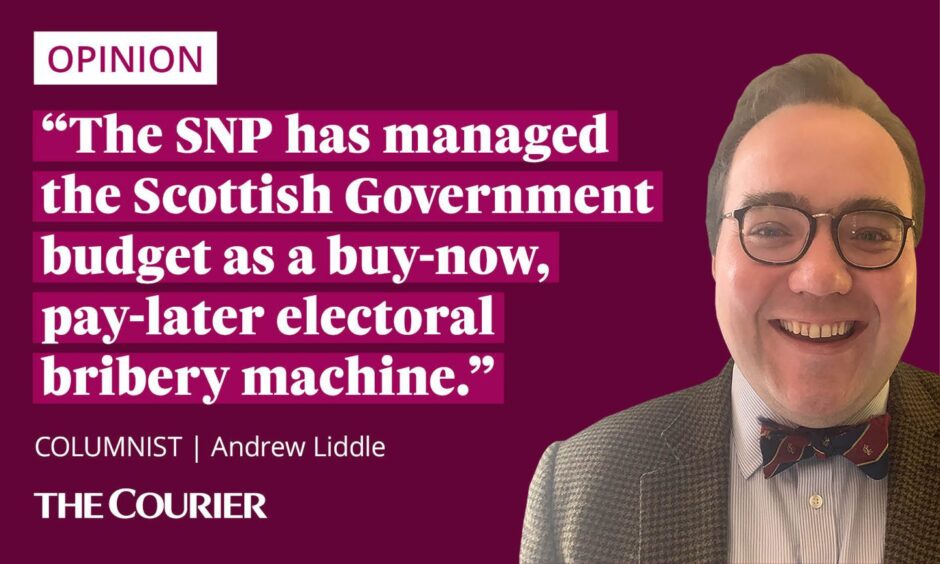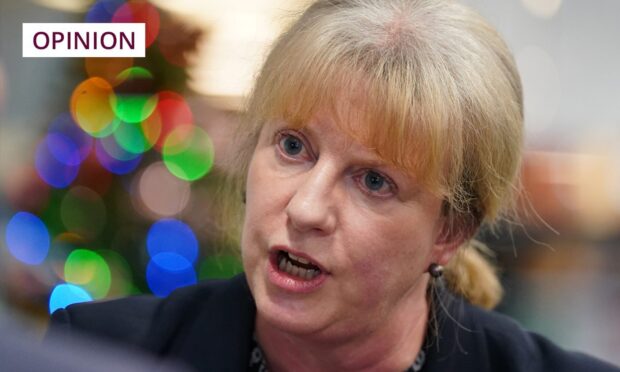There is no doubt the state of public finances across the UK is bleak.
Not since Bram Stoker published Dracula in 1897 has the opening up of books apparently caused so much horror and trepidation.
In Westminster, Sir Keir Starmer and Rachel Reeves are warning of hard times ahead.
Departments are being asked to find savings. Some taxes – perhaps inheritance and capital gains – may be increased.
Things will get worse, as they say, before they get better.
Remarkably, the situation in Scotland is even more bleak.
Once again, a Scottish Government budget has been ripped up just months after it was approved. Emergency spending controls have been imposed by the least imposing Finance Secretary of the devolution era.

Even Scotland’s much-vaunted social contract – giving benefits to rich people as well as poor people – is under threat. When the SNP embraced Scottish exceptionalism, this is presumably not what it had in mind.
It will come as little surprise to even the most cursory observer of Scottish politics over the last decade that the nationalists are laying the blame for all this woe firmly at the door of Number 10.
“This is the consequence,” the SNP’s Westminster leader Stephen Flynn warned, “of a new era of austerity…”
The problem – as that same cursory observer will know well – is that that simply is not the case.
The current issues in the Scottish Government’s budget are not the result of Westminster cuts, but SNP profligacy and mismanagement.
As the Scottish Fiscal Commission noted this week: “Much of the pressure [on the Scottish Government budget] comes from the Scottish Government’s own decisions” – decisions, it would add, were it not an impartial body, that were made entirely for political, not economic or social, reasons.
The ruinously expensive council tax freeze was introduced at SNP conference last year purely to prop up Humza Yousaf’s floundering premiership in the aftermath of the devastating defeat in the Rutherglen by-election.
Social security spending was set at a higher level purely to create a dividing line with the allegedly callous system at Westminster. Public sector workers were awarded massive pay deals so the SNP could claim Scotland was the only part of the UK to avoid strike action.
The SNP has, in short, managed the Scottish Government budget as a buy-now, pay-later electoral bribery machine. And yet, this tactic did not emerge out of a void. It is, in fact, not even a recent phenomenon.
‘SNP treats Scotland’s finances like blank cheque’
The reality is that the SNP has always treated Scotland’s public finances as a blank cheque to try and persuade more people to back independence.
The extension of universal benefits – now apparently under threat – is a prime example of how the nationalists sought to manipulate middle Scotland through the exchequer.
Certainly, for Scottish nationalists it was never the role of government to act as a steward of public finances, but to use them as a campaigning tool in a perpetual final push for independence. Such a view was always going to be unsustainable, and we are now paying the price.
For Scottish Labour, this presents a major opportunity. In their mismanagement, the nationalists will now be forced to rip up much of the social contract they ineptly created, while simultaneously lacking the intellectual and political capital to replace it with something new.
Much of Scottish Labour’s electoral success will hinge on its ability to fill that void and create a new, sustainable social contract for Scotland, with fairness and progress at its heart.
In the meantime, however, we all unfortunately must live with the SNP’s continuing incompetence for at least another 18 months.
In that respect, things really will get worse before they get better.












Conversation